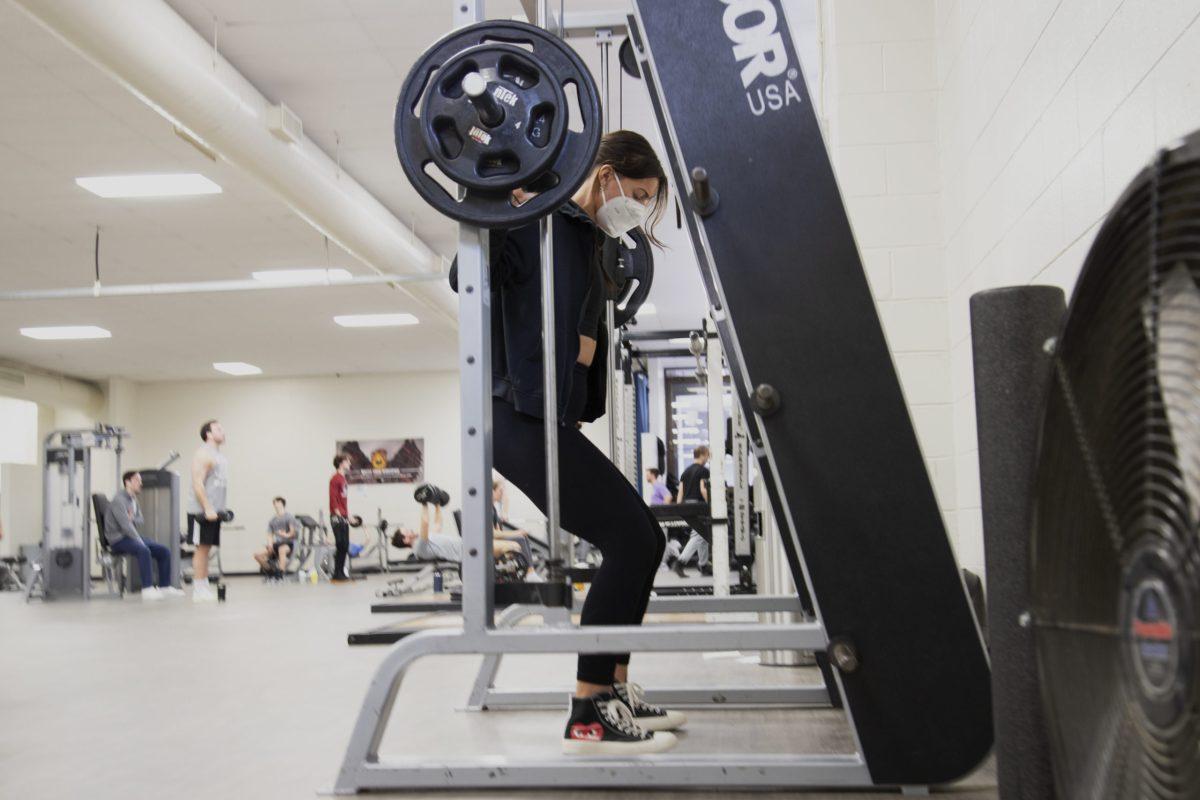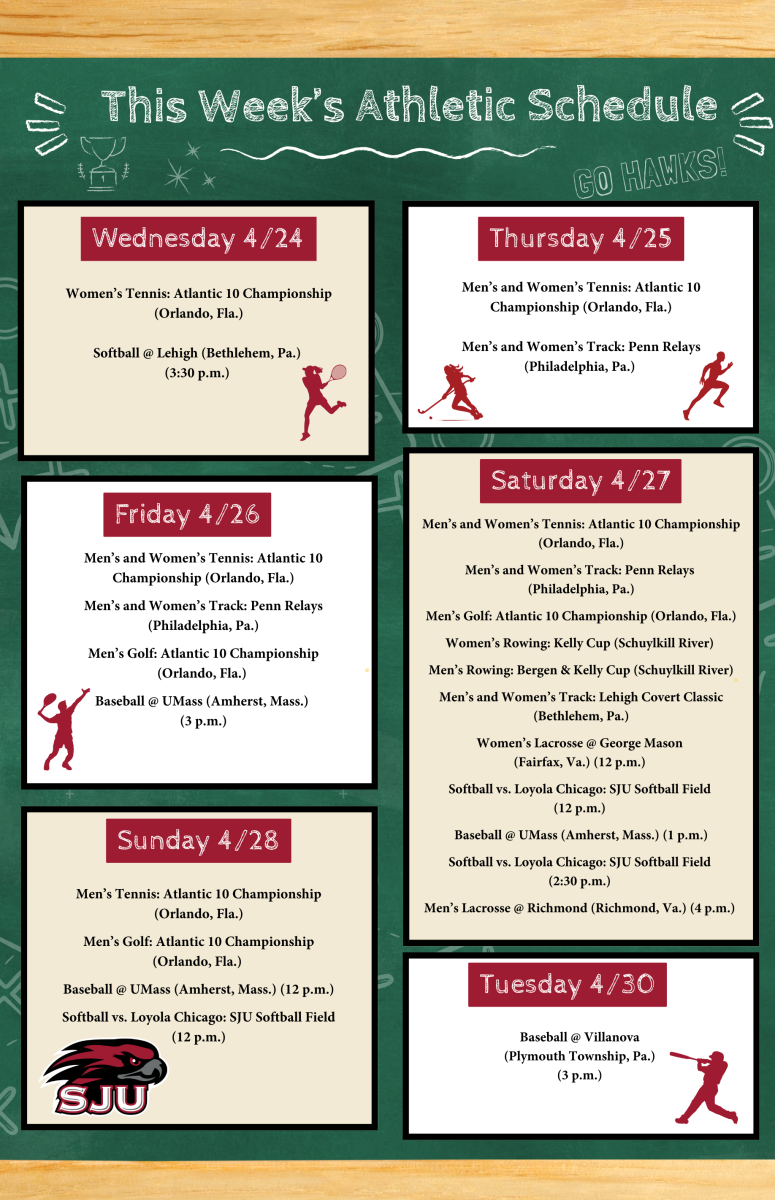Examining the relationship between women and weights
The metal dug into my back as my legs quaked. “One more, Lauren, just one more,” I told myself. Deep grunts bounced off the concrete walls at Kennedy Fitness in Medford, New Jersey, my hometown gym.
Looking around the weightlifting section of the gym, where I was trying to squat 180 pounds, I saw mostly older men and guys my brothers’ ages — late teens and early 20s. The amount of testosterone in the room drowned my femininity. I felt suffocated.
I used to be a fitness freak, but I never got into powerlifting. The point of powerlifting is to squat, bench press and deadlift as much weight as possible for one repetition. In competition, scores are calculated by adding together an athlete’s heaviest and best executed squat, bench press and deadlift.
To be honest, I was afraid of the stigma of looking too masculine if I started powerlifting. Powerlifters often have large, heavily defined muscles.
But, my younger brother Matthew motivated me to try it out. He’s more into bodybuilding, but I wanted to step outside my comfort zone. So I decided to give powerlifting a whirl late last semester. I started lifting at home, then moved to the gym.
I heard about a new powerlifting club at St. Joe’s that Liam Ferguson ’24 started in the spring of 2021. Covid-19 interfered, so this is the first year Ferguson was able to run the club. I decided to meet with him before starting my powerlifting journey.
Ferguson explained how he wanted to create an environment where everyone was driven to work hard and support each other.
“There wasn’t something like this at St. Joe’s,” Ferguson said. “I wanted to have my people to go to the gym with and talk to because I had that in the gym at home. So that’s really what I want, to start and meet new people who also have that same drive.”
Many people who powerlift want to get to competitions, to showcase their strength for one repetition.
Ferguson said his goal is to compete.
“The whole goal is to just see how much you can lift for your weight class, age and gender, etc,” Ferguson said. “Seeing that progress is really, really exciting.”
My intention wasn’t necessarily to compete, but to see if my body was capable of this strenuous sport. I just had no idea where to start. What parts of my body do I target? How much weight do I lift? How many reps do I aim for? How do I know if my form is correct?
Catie Moffett ’22, a member of the St. Joe’s women’s rowing team and a frequent lifter, said it’s important to start at a lower weight.
“Start off with what you are comfortable with and what you know you can do,” Moffett said. “You don’t want to go into the deep end too fast because then you risk injuring yourself.”
When I decided to start powerlifting, my underdeveloped basement gym was a comfortable starting point. I looked at my reflection through my thin white-framed mirror as I lifted the 30-pound dumbbells over my head 10 times.
“Bang!” I dropped the dumbbells on the concrete and inhaled deeply. The natural high of dopamine raced through my brain and down to my body. The feeling was unbeatable. I wondered why more women don’t do this.
Christopher Clayton, a personal trainer at Planet Fitness in Roxborough, Pennsylvania explained how society perceives women who lift weights tends to hinder their progress.
“Society holds a stigma on women lifting in regards to labeling them as too masculine,” Clayton told me. “A woman can work out consistently, deeming her physically fit, and active. However, a woman who works out as a profession or for a sport can have her viewed differently and sometimes unacceptable in some cases.”
Gender barriers on the gym floor aren’t the only thing keeping women away from the dumbbells. The stereotype that muscles are just for men is well ingrained in society.
Moffett said if women want to lift, they should lift. Period.
“Don’t let anybody tell you that what you’re doing is too masculine or too this because at the end of the day, they’re not the ones lifting or not the ones getting stronger,” Moffett said. “It’s you who’s getting stronger.”
After a week of implementing heavy lifting, I realized I did not look like Arnold Schwarzenegger. I also had a more structured routine and held myself accountable on my consistency. My intention was to go outside my comfort zone while learning more about the relationship between women and weightlifting.
“I’ve known a lot of women who are very strong and competitive,” said Ferguson. “And even if they don’t compete, it’s just something that they enjoy doing. I don’t think there should be a stigma or a fear of just trying to improve yourself.”
After a week of powerlifting, my mental and physical health felt amazing. My body, on the other hand, felt like I got hit by a bus. I’m not sure powerlifting is for me. It’s hard work. But I am going to start implementing heavier weights into my workout routine.
After all, being a strong woman is an admirable goal, no matter how you get there or what you look like.




































